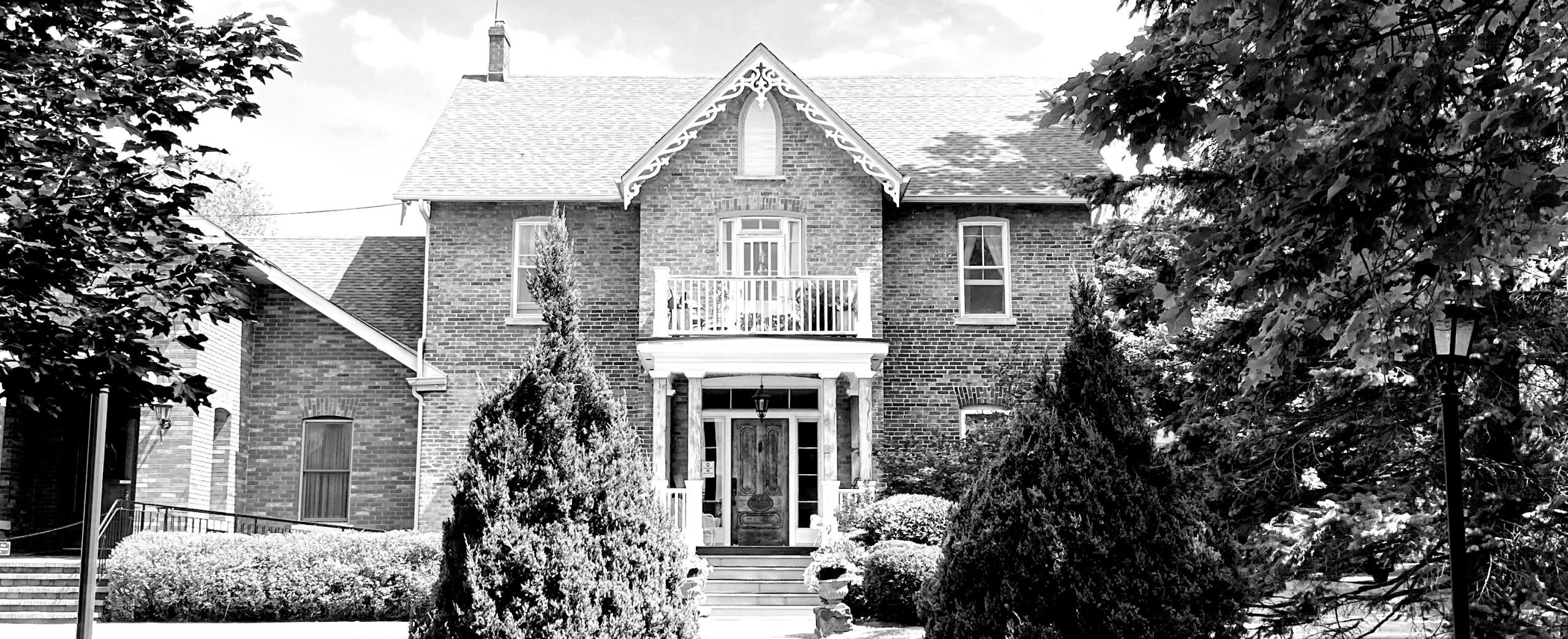John P. Plank arrived in Uxbridge in 1826 and quickly established himself as a cornerstone of early development. That same year, he built the town’s first inn and tavern, providing a much-needed stop for weary travelers. Just two years later, in 1828, Plank expanded his ventures by constructing a sawmill at Elgin Pond and opening Uxbridge’s first general store. His entrepreneurial spirit played a vital role in laying the groundwork for commerce and industry in the young town.
In the 1840s, Plank constructed a new inn just north of where the Uxbridge Music Hall now stands. Notably, it was the first brick building in Uxbridge—a clear sign of the town’s growth and Plank’s forward-thinking nature. He also acquired 200 acres east of Main Street, which he subdivided and sold off in the 1850s, contributing significantly to the town’s residential expansion.
By the 1870s, Plank turned his attention to a prime location at the southwest corner of Brock and Main Streets, where he built the Plank House—a structure that became a local landmark until it was later lost to fire. Tragedy struck again in 1873, when a devastating fire swept through the block between Marietta and Brock Streets, destroying multiple buildings, including Plank’s original home, once regarded as one of the finest in Uxbridge.
Determined to rebuild, the current John P. Plank Residence was constructed shortly after the fire. Sadly, Plank passed away in 1876, with his wife following just a year later. The home remained in the Plank family until 1934, when it was sold to Hartley Vyvyan. Two years later, it returned to the family line when Anson T. Button Jr., Plank’s grandson, purchased the house in 1936. Button converted the residence into apartments and lived there until his death in 1969.
Today, the home lives on as part of the Low and Low Funeral Home, now owned by the Low family. A significant addition was made to accommodate its current use, but the spirit of the original structure—and the pioneering man behind it—remains a notable part of Uxbridge’s story.




 Facebook
Facebook
 X
X
 Pinterest
Pinterest
 Copy Link
Copy Link



